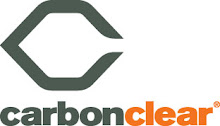I attended a carbon
footprinting discussion at the UK Houses of Parliament last year on behalf of Carbon Clear. At that session, Christian Aid and other organisations were calling for standardised corporate carbon
footprinting and a
Defra representative mentioned that they were setting aside funding to research the issue.
It was therefore no surprise to read in yesterday's
Independent on Sunday newspaper that the UK Government has moved closer to requiring publicly listed companies to disclose their corporate carbon footprints along with the other data included in their annual reports.
There are many reasons why
diferent actors would want companies to report this information. First, it makes it easier to benchmark the performance of individual firms. This enables government, shareholders and activists to identify and praise the environmental leaders and criticise the laggards. Such pressure, it is hoped, will pressure companies faster voluntary action to reduce emissions.
The second, and to my mind more important rationale, is that mandatory carbon footprints provides greater access to a very powerful management tool for large and small companies alike. Carbon
footprinting provides an opportunity for managers to look at their company from a new perspective. In addition to helping benchmarking against the competition, understanding and tackling your corporate carbon footprint provides five key benefits:
- Reducing costs: As a company, your biggest sources of carbon emissions are often items that cost you money: fuel, electricity, raw materials, and waste disposal. Using these resources more efficiently can trim your carbon footprint while helping your bottom line.
- Developing new business opportunities: The "green and ethical" consumer market was worth £30 billion in 2006 and continues to grow rapidly. Companies that can respond to this opportunity new lower-carbon products and services stand to gain competitive advantage.
- Engaging staff and customers: As I pointed out in an earlier post, employees expect their companies to be good environmental citizens. Developing a carbon footprint reduction strategy is a way to involve a cross section of staff in an exciting new initiative, secure a visible commitment from senior management, and strengthen morale.
- Strengthening the brand: A report by the Carbon Trust indicates that climate change has put over £20 billion pounds of brand equity at risk. Communicating your low-carbon credentials in an effective manner can help companies protect and strengthen their brand in a low-carbon economy. For example, Walkers gained a tremendous amount of free publicity when it put carbon footprint labels on its potato chips. More and more companies are joining in.
- Increasing peace of mind: Climate change creates winners and losers. Government policies, customer buying behaviour, investment criteria and business costs all change when we shift to a low-carbon economy. Measuring and analysing the corporate carbon footprint is the first step in understanding how climate change affects the company. That knowledge helps managers increase the likelihood that their company is a winner.
It's a shame that the Independent article doesn't mention any of these benefits. The main response they highlight from a business spokesperson is a negative one:
"The CBI said on Friday in response to the news that although it endorsed mandatory reporting and would like to see it implemented by 2013, the definition of carbon emissions was not sufficiently developed for the move to be introduced this year."In fact, Carbon Clear and major corporations around the world have been using an international standard, ISO 14064-1, to measure carbon footprints for years. That standard was released two years ago and has been used by hundreds of governments, small businesses and multinational corporations. Other listed companies around the world are already reporting their emissions under a variant of this standard for the Carbon Disclosure Project. So the main objection to mandatory reporting - that there's no standard definition - goes away.
We'll keep watching as government policy evolves. After all, at Carbon Clear, we help companies and individuals take action to tackle climate change and gain as much benefit as possible from the shift to a low-carbon economy. The more tools we can give our partners, the better.
(Back to the Carbon Clear website)





